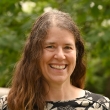Waiting to Apply to Health Profession Schools
Trying to balance academics, clinical experiences, community service, research, other extracurricular activities, hobbies, and relationships? Not feeling ready to prepare for your standardized test for admission to health professions schools or to tackle the application process? Not absolutely sure of your career path? Learn more about taking a gap year (or more) before applying to health profession schools.
Taking a Gap Year (Or More)
It is increasingly common to take time off between undergraduate education and professional school. For example, the average age for starting medical school is 24, with over 70% of medical school students taking at least one gap year. At Wellesley, this number is higher, with over 80% taking one or more gap years. Because so many applicants are taking time off and working, applicants who apply to go direct are competing with candidates with more experience.

Wellesley applicants who are ready to apply direct do quite well in the application process. As you are considering taking a gap year, review the Self-Assessment to decide if you are ready to apply or if you would be better off taking more time to gain experiences, increase your GPA or study for your entrance exam.
Gap Year Ideas
Because so many pre-health students are taking time to work between undergraduate and professional school, there are a growing number of one or two year positions available in reseach, service and clinical settings. Common gap year experiences include:
- Working in a bench, clinical, or other research position
- Working in a clinical setting as an EMT, Certified Nurses Aid (CNA), Medical Assistant, Medical Scribe, Emergency Room Technician, Mental Health Assistant or optometry assistant.
- Participating in service activities such as AmeriCorps, City Year, Health Corps, Partnership for Public Service, Habitat for Humanity, Teach for America, or Peace Corps.
- Completing and/or strengthening your academic record by taking additional courses on your own or as part of a master’s or post-baccalaureate program
- Traveling and learning about people, their cultures, and other systems of healthcare
- Working in public health, public policy, or for a non-profit.
- Doing anything that will help you to grow as a caring, empathetic, communicative, and collaborative person who advocates for others
Gap Year Planning
- Keep active in a clinical setting through work or volunteering. Learn more about your career as you approach your application cycle.
- Stay in touch with Wellesley Health Professions Advising. Note all deadlines and meetings in your calendar.
- Familiarize yourself with the application process: see Completing Your Application in the APPLY section.
- Plan for your standardized test, making sure that it won't expire before you apply.
- Think about letters of recommendation now. Speak with faculty members before you leave campus. Keep in touch with letter writers and provide them with updates when you are ready to request your letters.
- Talk to financial aid to understand if you will need to begin paying back student loans.
- International students should check with the Slater International Center regarding immigration and work policies.
Post-Baccalaureate Planning
If your grades have not met requirements for admission at graduation, consider a Post Bac program where you can take additional coursework. There are options to either take additional undergraduate courses or to complete a master's degree program. The AAMC has more information about doing a post bac and a searchable list of post bac programs.
These programs are extremely varied and provide different services. Some programs cater to prospective applicants who haven’t had a chance to complete their required pre-health courses (“career changers”), others are for students who have taken the courses but need to strengthen their knowledge and their grades (“career enhancers”). Prospective applicants may also be looking for programs that will provide research experience, clinical exposure, service opportunities, special linkages to health professions schools' admissions offices, and/or preparation for the required admissions test. It is a good idea to talk to a Health Professions Advisor as you plan to apply to Post-Bac programs to ensure you are choosing a school that will be a good fit.





